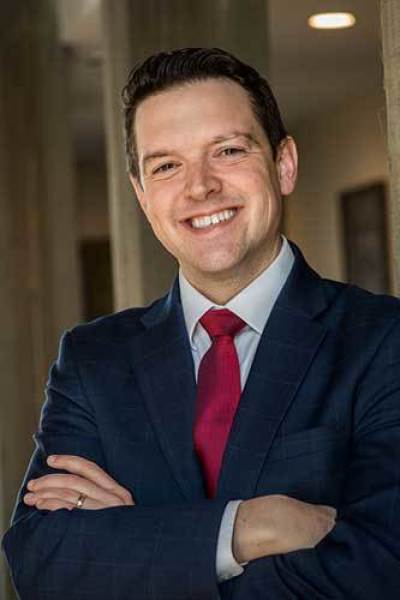Critical race theory as a covert assailant to the church

Marxism, like many ideologies, is propagated and marketed in such a way where equality, equity, self-gratification, and personal vengeance all share the same stage. A something-for-everyone approach to both utopian idealism and a cosmic quest for justice where the government is the collective guarantor of happiness and the avenger of every self-identified victim group … who wouldn’t want that?
Perhaps on the surface, government-backed utopianism in the name of social justice might sound appealing. But a brief knowledge of history, a recognition of man’s less-than-ideal depravity, and a critical thinking approach to personal liberties will unmask the fundamentally oppressive nature of Marxism and reveal the most insidious hatred for all humanity — especially for those it pretends to save.
Perhaps the most prominent expression of Marxism in American culture today is critical race theory (CRT).
Critical race theory, which was developed by progressive scholars like Kimberlé Crenshaw, Robin DiAngelo, Richard Delgado, and many others, seeks to create an analytical framework of interpretation that deconstructs the entire foundations of freedom, justice, and equality in western society. It divides the world into oppressor and oppressed groups based on skin color and other immutable characteristics, including sex. Unlike the civil rights movement of the 1960s, CRT draws on sociology, philosophy, economics, and law to both deconstruct systems in a post-truth reality while infusing identity politics and racism into every interpretive lens.
While the civil rights movement focused on the content of an individual’s character rather than the color of their skin, critical race theory reverses course and focuses exclusively on color and racial identity and sees, through a postmodern lens, racism in every structure of society.
Tragically, CRT has become the notorious fifth column dividing the modern Church.
In the defense and intelligence communities, a fifth column refers to a clandestine unit meant to infiltrate an adversary by acclimating that adversary to the fifth column’s covert presence. The fifth column is not only displayed as unhostile; it may even appear as supportive.
In the same way, critical race theory is a fifth column to the biblically mandated pursuit of justice that we, as the Church, are commissioned to advance. On the surface, CRT looks friendly, sounds friendly, and may even be advocated for by reputable Church leaders. But CRT includes an infiltrating poison that often goes unnoticed until its toxic nature finds a seat in the Church. The difference in these analogies is that when the fifth column is exposed, it is met with a defensive maneuver from its opposition forces. Unfortunately, the Church has not been nearly as discerning nor even opposed to this hostile infiltration.
Cue the modern Church where pastors who otherwise would be deemed committed to scripture are now adopting this fifth column of wayward theology and allowing it to infiltrate their churches.
Recently, Owen Strachan, director of the Center for Public Theology at Midwestern Baptist Theological Seminary, suggested that pastors who teach “wokeness,” an informal descriptive for CRT, should face Church discipline.
“In churches and institutions, those who teach and promote wokeness — binding the conscience of people with new unbiblical laws — must face Matthew 18 discipline. The Church has tolerated the spread of wokeness too long. It is time for a line in the sand.”
But if CRT is so destructive, why are some pastors buying into it — pastors who are otherwise reputable for ardently standing on biblical truth?
The rival nature of a fifth column is not immediately exposed. Indeed, to avoid the appearance of a threat, the column masquerades as a friend or ally. Likely, with CRT, pure-minded leaders are enamored with words like justice, anti-racism, and righteousness, but missing the critical substance that lies beneath.
Why wouldn’t a leader find such a theory attractive? This is where discernment is lacking. Simply put: Critical race theory is accepted by young pastors because, on the surface, its qualities superficially mirror biblical narratives of justice without scrutiny or further reflection. This was no different than when pastors posted black-out squares on Instagram to mirror the social media campaign of Black Lives Matter, Inc., a Marxist organization funded by the Ford foundation that exploited a moment of racial unity over the death of George Floyd to encourage riots, looting, and social upheaval across the country.
The current crop of evangelical leadership is not trained in Marxism, but that’s not needed to unwittingly promote CRT and intersectionality. Strong biblical orthodoxy is needed to discern truth from every doctrinal error. CRT exploits these theological cracks within mainstream evangelicalism and seldom goes detected, like a counterfeit bill to an untrained eye.
Christians should be shown grace when deceived by CRT’s error, but by no means should anyone be left in ignorance or to their own devices. Pastors have a greater responsibility as shepherds of the flock and should be held accountable.
Dr. Owen Strachan’s aforementioned appeal comes into play here. Church discipline is not just reserved for bad behavior, but for bad theology as well. From a practical standpoint, bad theology results in poor spiritual growth, and poor spiritual growth undermines the Church’s role in the Great Commission. From a spiritual standpoint, how dare these Church leaders associate the gospel of Jesus Christ with anything other than the redeeming good news itself, let alone a message saturated in false cultural narratives?
The Bible rebukes critical race theory.
There are several ways that CRT is clearly at odds with biblical doctrine:
1. Critical race theory divides people based on the immutable characteristics of skin color, like “whiteness” or “blackness,” rather than on the present enmity with God. The Bible teaches that all have sinned and fallen short of the glory of God (Romans 3:23), and that we were all separated from God because of our sin (Ephesians 2:1,3).
2. Critical race theory promotes partiality along the lines of intersectionality, which is the ideology’s term for calculating exactly how “oppressed” a person is based on their membership in different victim groups. The Bible demonstrates that God’s justice shows no partiality or favor toward the poor, oppressed, or those with a different melanin content. God’s justice and righteousness treats everyone equally (James 2:1-13; Leviticus 19:15; Colossians 3:25).
3. Critical race theory seeks to condemn Christians and divide the Church along racial and ethnic lines when God has already created one body in Christ. Romans 8:1 is clear that there is no condemnation for those who are already in Christ. Ephesians 2:11-22 speaks to the reality that the wall of separation between Jew and Greek has already been removed in Christ, thus creating one new people. Galatians 3:28 speaks to there being no distinction between Greek nor Jew, slave nor free.
4. Critical race theory promotes the belief that the original sin of racism must be passed down from generation to generation, essentially blaming and holding accountable the current generation for the sins of their fathers. The Bible makes clear that the sin of Adam is inherent in all generations regardless of ethnicity (1 Corinthians 15:22). Furthermore, particular sins of previous generations cannot be atoned for by individuals (Ezekiel 18:20), but rather Christ is the only atonement for all sin (1 John 2:2).
5. Critical race theory is a worldly philosophy that misleads the Church and distorts the Gospel of Jesus Christ. CRT is an “empty and hollow philosophy” of deconstruction, which Paul warns the Church about in Colossians 2:8-9, because it adds works to the gospel in order to be fully saved from the sins of the past (Ephesians 4:20) while absolving others of guilt for the sins practiced in the present (Romans 2:1-11).
CRT denies biblical reality. It is an affront to the Christian gospel and has no place in the Church.
Jesus Christ is the only one who can atone for sin — all sin, including racism — and make one whole community out of a divided people, which he has done from the beginning (Matthew 16:18).
In the future we will be judged by how we acted in this present moment. Did we act in love, grace, and truth, or did we capitulate and virtue-signal to a lost and dying culture that wanted ears tickled rather than adhere to the cutting edge of God’s Word?
While Marxism makes its long march through institutions, we must eliminate the fifth column of critical race theory within the Church. The Gospel depends on it.
Ryan Helfenbein is the Vice President of Communications and Public Engagement at Liberty University and Executive Director of the Falkirk Center for Faith & Liberty.





















